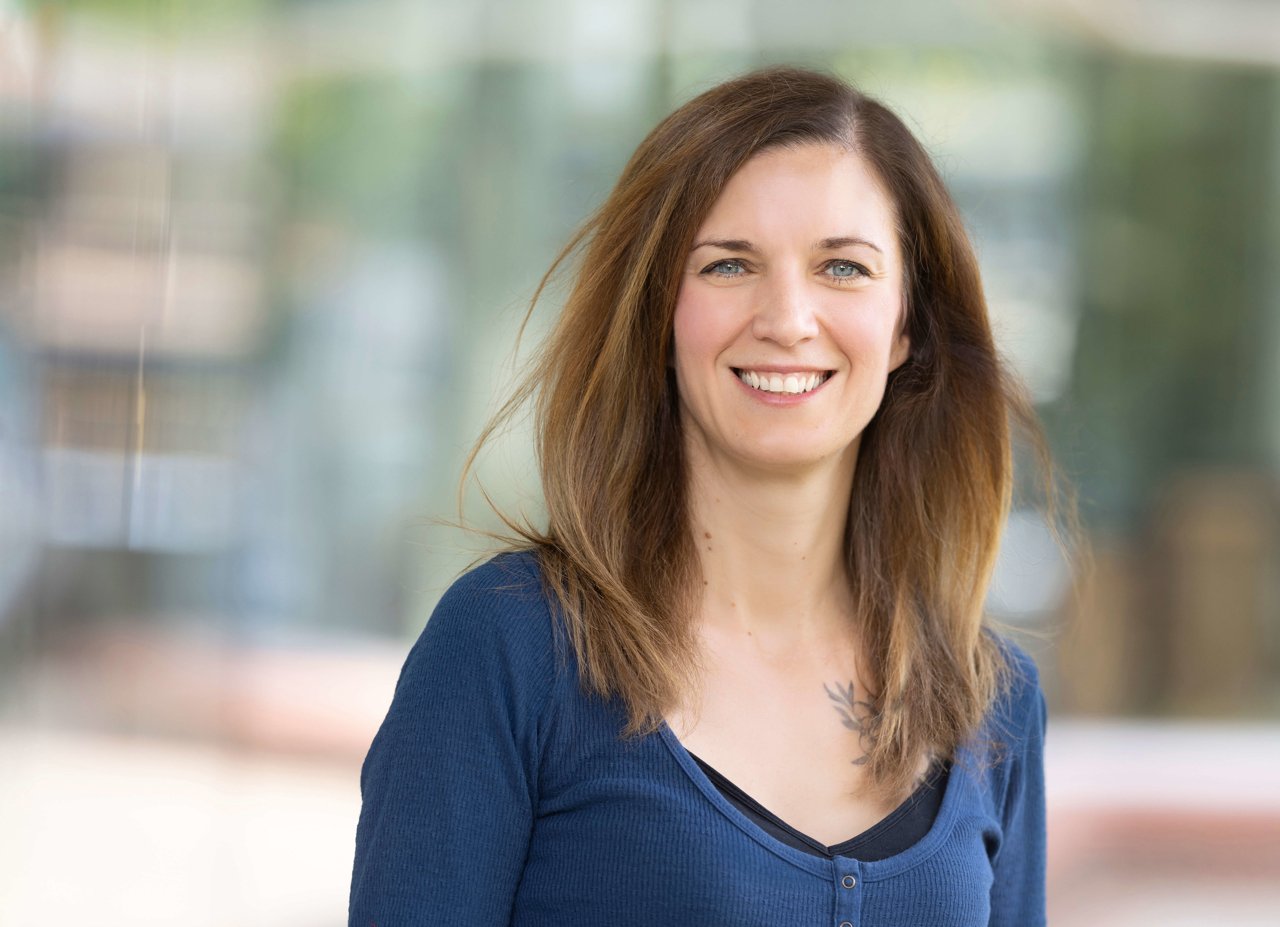
Critical Conversation Speaker Series kicks off with examination of lessons America can learn from its immigration history
October 07, 2025

October 07, 2025

“Critical Conversations: Immigrants in America: How Does the Past Help Us Understand the Present?” was led by Grace Yukich. A professor of sociology at the College of Arts & Sciences, Yukich is a nationally known scholar, lecturer and author. Her expertise lies in religion, immigration, race and ethnicity, social movements and politics, and culture.
Held during Common Hour on September 30, the university-wide conversation invited those gathered in the SITE Auditorium on the South Quad of the Mount Carmel Campus, and those watching via livestream on the North Haven Campus, to explore this timely topic.
Quinnipiac Vice President for Inclusive Excellence John Armendariz said the objective of the Critical Conversations Speaker Series is to foster an inclusive and intellectually stimulating environment at Quinnipiac, promoting inclusivity of thought, respectful dialogue, empathetic engagement, and open-mindedness among students, faculty and staff.
To open this year’s series, Armendariz welcomed Quinnipiac President Marie Hardin, who thanked the Bobcat community for engaging in the series and in the day’s important discussion.
“This series invites us to engage with ideas that stretch our thinking, test our assumptions, and deepen our empathy. It’s about inclusivity of thought and learning — to listen with open hearts and open minds,” said Hardin.
Knowing the stories of where families came from and how they came here can be a powerful act of connection, Hardin said.
“It reminds us that our differences don’t have to be lines of demarcation, but rather added dimensions that enrich both our university community and our shared humanity,” said Hardin.
Hardin thanked Yukich for bringing her deeply relevant insights to the day’s conversation. Yukich said she was grateful for the Critical Conversation Speaker Series, as it provides space to engage in difficult discussions, even on polarizing topics.
“When people ask me what I do, I usually say I write and teach about all the things that you’re not supposed to talk about at Thanksgiving dinner,” Yukich said. “The truth is, those are things that we should be talking about — if not at Thanksgiving dinner, then more often than we do. I think one of the issues we face as a society is we don’t talk to each other often enough about hard issues that we disagree about.”
To better understand the context of America’s immigration history, Yukich began with the present, displaying a poll asking whether immigration should be kept at its present level, increased, or decreased.
“You can see that we’re a divided country,” said Yukich. “About a third of us think it should be increased, about a third think it should be decreased, and about a third think it should stay the same.”
Another recent poll regarding how people are feeling about the way immigration is being currently handled in America provides another example of a divided nation, said Yukich.
“This is a division mostly along partisan lines. We have seen, just in the last five to six months, a decline in the overall approval rating of how President Donald Trump is handling immigration in the United States. Now, about a third of Americans approve of that handling. But you can also see strong partisan division. About 60 percent of Republicans strongly approve; zero Democrats in the poll strongly approve,” Yukich said.
For additional modern-day context, Yukich touched on headlines and images in current news involving the country’s rise in deportations and detentions, instances of removal to other places without legal consult which have raised concerns among immigrants and their supporters about human rights and possible human rights abuses on U.S. soil; and opposition to the U.S. federal Immigration and Customs Enforcement agency recently resulting in policy to elevate security at ICE facilities nationwide.
The news shows how immigration enforcement has become a flashpoint in today’s America, not only in policy debates but also in societal debates about public safety and political violence.
“How did we get here? How did we get to this place where a gunman is attacking an ICE facility, where people are being taken off the streets and sent to blackhole detention sites where they can’t contact family or lawyers – nobody knows where they are, and they disappear. To understand our current context, we really need to look at the history of immigration in America and what that looks like,” said Yukich.
Yukich examined how immigration, immigration policy restrictions, and reactions to immigrants have changed throughout the country’s history. She shared contributions of immigrants to the country’s growth and expansion and discussed how pro-immigrant sentiment and support led to immigration policy shifts over time.
By digging into the past, Yukich also showed how America’s history contains both openness to immigrants and fear and scapegoating of immigrants; and how efforts such as engaging restrictive policies including quotas and bans typically create unauthorized migration rather than its elimination.
History has also shown that successful assimilation into American culture relies on the importance of legal status and an investment in integration through education, language, and civic inclusion to shorten assimilation timelines, together with protections against discrimination.
Yukich said the nation must decide how best to facilitate immigrant integration today based on historical lessons and national values.
“Immigration is not just a burden or threat — historically and today, immigrants contribute economically, culturally and demographically to the United States,” Yukich said.
Quinnipiac Today is your source for what's happening throughout #BobcatNation. Sign up for our weekly email newsletter to be among the first to know about news, events and members of our Bobcat family who are making a positive difference in our world.
Sign Up Now